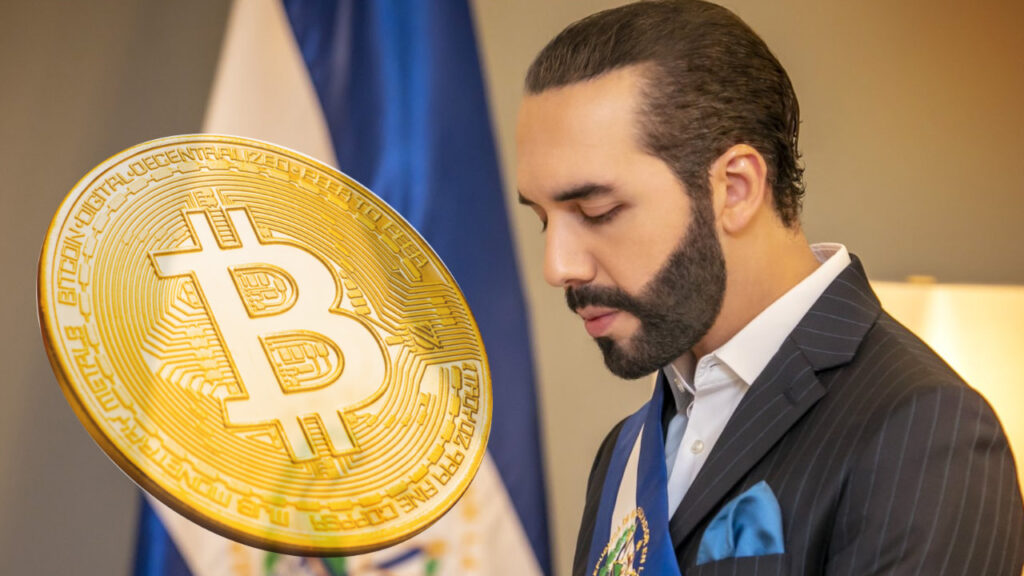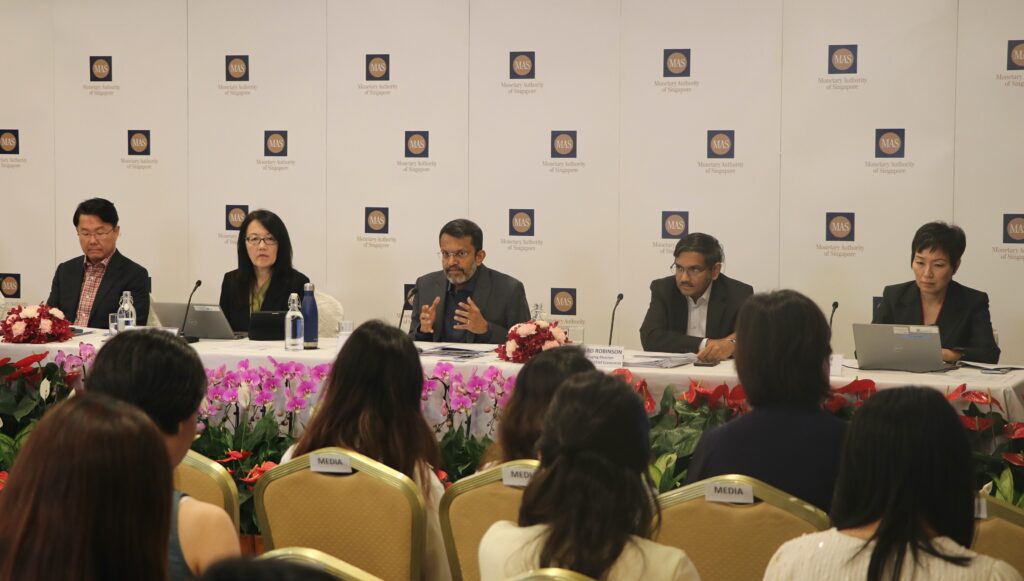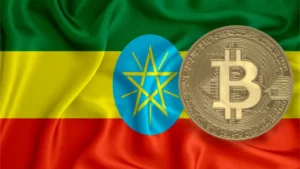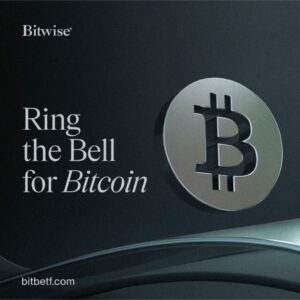- In 2022, despite the horrendous crypto crash, experts valued the Global Web 3.0 Market at $3.34 billion.
- In June 2021, El Salvador became the first Blockchain country to recognize Bitcoin as a legal tender and the US dollar.
- In 2019, Portugal’s government launched the Blockchain Panorama platform.
Technology has evolved over the past few years through a complex process of sharing information and ideologies. This new era is no different, as the Web3 industry comprises learning from others and improving upon past inventions. For instance, developing a concrete law framework for crypto platforms, decentralized applications, and even blockchain startups are among the few demerits of Web3. The success of the few regions able to implement crypto regulations has sparked hope for a better future, even in Africa. This article will highlight the success of the top three blockchain countries today. Learning from their successes and failures might be the stepping stone Africa needs, to fully adopt Web3.
The power offered by blockchain to countries.
Web3 is among the few technologies ushering in a new era of innovations. In previous articles, we have highlighted the several innovations few blockchain countries have undertaken. Unfortunately, despite their minute numbers, their achievements and failures have forever changed how we view several industries.
Decentralized applications offer plenty of benefits to the user directly. It relinquishes the need for third-party entities and has succeeded where Web2 has failed. Although, after numerous tests, failures and successes, blockchain’s main selling point has become its adaptability.
Crypto became its first application, and initially, the entire globe did not appreciate the intellect behind its functioning. Soon after its rise to glory, developers sought to improve traditional financial systems through blockchain. Its immutability and automation made work easier, safer and more accessible to the rural populous. This led to the development of Africa’s fintech industry, which currently rivals and suppresses several economic activities.
Also, Read What we learnt from El Salvador, Bitcoin 1 year later.
The fintech industry led many to believe that decentralized applications could offer much more than a decentralized financial system. This led to the development of blockchain countries. These states have embraced the full functionality of blockchain. Not only have Blockchain countries advocated for such innovation, but found a way to support aspiring inventors and entrepreneurs.
This significantly propelled the web3 adoption rate throughout the globe. Today, medical institutions, artists, farmers, AI developers, real estate, insurance and many more industries have significantly adopted blockchain technology to improve functionality.
In 2022, despite the horrendous crypto crash, experts valued the Global Web 3.0 Market at $3.34 billion. They also projected that the entire market will reach $49.10 billion by 2030. Furthermore, developers have continued to expand the applicability of Web3 into domains in which previous technology has failed. Its flexibility, immutability, automation and value have led to the rise of blockchain countries.
Benchmarking with the top three blockchain Countries
The concept of improvement significantly hinges on learning what already exists and improving on it. This basic principle has driven innovators, scholars, researchers and entrepreneurs to seek after existing work and improve on it. This is why several aspects of the world, such as Physics, Chemistry and Biology, are in constant improvement.
Thus, it’s only logical for the same principle to function in improving the web3 adoption rate. The below-mentioned Blockchain countries have attained their title through their zealous attitude towards decentralized applications. They supported in-house blockchain startups, and set legal frameworks that protect and safeguard the use of any Web3 Element. These blockchain countries include:
El Salvador; is the first blockchain country.
At the height of crypto and the web3 adoption rate, the entire globe was sceptical about the functioning of blockchain. During this period, plenty of banks, governments, and officials gave sound reasons why crypto would end the economy if legally adopted. Fortunately, amid this negativity, the high rate of crypto in El Salvador sang a different tone.
In June 2021, El Salvador became the first Blockchain country to recognize Bitcoin as a legal tender and the US dollar. The recognition of crypto in El Salvador sparked a chain of reaction that would officially mark the first step in the global adoption of Web3. Remember, doing so amid the consistent fluctuation of the crypto market, and following the massive crypto crash of 2022. This bold move is what set El Salvador as the first Blockchain country.

El Salvador became the first Blockchain country by adopting Bitcoin as a legal tender.[Photo/Medium]
El Salvador has become a haven for international investors and blockchain startups. According to Nayib Bukele, the country’s president, acknowledging Bitcoin was a strategic move that solidified El Salvador’s place in the 4th Industrial Revolution.
Also, Read El Salvador beefs up on the already existing Bitcoin Law.
In August 2021, the legislature’s finance commission approved the $150 million trust fund for the state development bank. Within the next month, the nation launched a government-owned crypto wallet, the Chivo. Each wallet contained $30 in BTC, and the government added several infrastructures to support Crypto in El Salvador.
By establishing a network of crypto ATMs and a decentralized application accessible to its users, El Salvador is actively dealing with over 70% of unbanked citizens. The main reason why crypto in El Salvador has featured first in this category is mainly due to its rapid crypto adoption rate. At a time when the majority globe continuously looked for reasons to justify why web3 cannot work, El Salvador worked as a nation to prove why it would.
Portugal; the home of decentralized applications
Next in line among the top three blockchain countries is Portugal. The rise of decentralized applications in Portugal is no secret, with the support of its governments. The country is home to over 40 blockchain startups offering private and public services. The need for decentralized applications has grown given the country’s positive take on crypto, which has sparked the light of innovation among developers and entrepreneurs.
In 2019, its government launched the Blockchain Panorama platform. It encouraged the exchange of information and cooperation within the web3 industry. This has led to the development of a proactive and favourable environment for Web3 to truly thrive.
Bitcoin and crypto enthusiasts have used the alarm to encourage the use of crypto in real life. This growing movement has enabled many merchants, businesses and blockchain startups to accept cryptocurrency as a form of payment. For instance, blockchain startup, BitBase, is currently working on a project to bring more Bitcoin ATMs and stores to several cities in Portugal.
This rapid web3 adoption rate has led to the development of significant decentralized applications in Portugal, such as:
- nftperp
- Cropper
- Mint base
- VelasPad
- Youverse
Singapore
Singapore is among the leading blockchain countries that have significantly advocated for blockchain startups. Developers, crypto traders and web3 entrepreneurs have the support of its government, which further creates a conducive environment for innovation.
Revi Menon, the managing director of the Monetary Authority of Singapore (MAS) is an avid web3 supporter. He defined the blockchain as a gateway that allows several diverse entities to work together without additional intermediaries. The growing number of blockchain startups in Singapore is among the first indications of how web3 can transform a region. The government has invested heavily in several blockchain research and developers.

The Monetary Authority of Singapore has played a vital role in ensuring that set regulations govern how blockchain startups function.[Photo/Twitter]
This created a conducive environment for Initial Coin Offerings, which is why many blockchain startups in Singapore and other countries opt for the region. The MAS has developed several governance structures, technical standards and infrastructures to encourage the development of decentralized applications. Currently, its primary role, especially after the incident in 2022, is to monitor and mitigate the crypto industry risks.
Also, Read El Salvador hosts 44 countries to discuss the future of Bitcoin in governance.
Singapore has hosted and pioneered several blockchain-based events throughout the year. In 2022, the nation held a Singapore Fintech Festival to commemorate how far the region has gone to establish itself as a blockchain country. Furthermore, it was an opportunity for the region to focus more on blockchain startups, rather than the crypto market.
Ravi Menon has revealed several plans of the MAS to strengthen the value and number of blockchain startups in Singapore. Amid this agenda, they are developing an instant cross-border remittance. Another MAS project is to work with the Bank for International Settlements Innovation Hub on Project Nexus. This collaboration will lead to the development of multilateral solutions that link several real-time payment systems in various countries.
The Key is cooperation
These three blockchain countries do not have the most advanced technology nor rank high in the global crypto market, but their approach to web3 has set them apart. One of the main issues Africa has within the industry is cooperation. Instead of the web3 industry acting as a bridge between governments and their people, it serves as a threat.
Unfortunately, Africa’s web3 adoption rate exists due to the commitments and hard work of some nations. Even among these handfuls of upcoming blockchain countries, only two have managed to attain what El Salvador, Portugal and Singapore have. South Africa and Nigeria are currently leading Africa’s blockchain rate.
This is all due to the cooperation between the individual trader, developer, organization and government. South Africa has recently made several strides to improve its crypto environment and advocates for more blockchain startups. If only Africa could attain a consensus and choose to embrace decentralized applications, we might surpass developed continents.
- SEO Powered Content & PR Distribution. Get Amplified Today.
- PlatoData.Network Vertical Generative Ai. Empower Yourself. Access Here.
- PlatoAiStream. Web3 Intelligence. Knowledge Amplified. Access Here.
- PlatoESG. Automotive / EVs, Carbon, CleanTech, Energy, Environment, Solar, Waste Management. Access Here.
- BlockOffsets. Modernizing Environmental Offset Ownership. Access Here.
- Source: https://web3africa.news/2023/07/20/news/blockchain-countries-usher-in-new-era/
- :has
- :is
- :not
- :where
- $3
- $UP
- 1
- 10
- 2019
- 2021
- 2022
- 2030
- 33
- 40
- 4th
- 7
- a
- Able
- About
- Accept
- accessible
- According
- achievements
- acting
- actively
- activities
- added
- Additional
- adopt
- adopted
- Adopting
- Adopting Bitcoin
- Adoption
- advanced
- Advanced Technology
- advocates
- africa
- After
- agenda
- AI
- alarm
- All
- allows
- already
- also
- Although
- Amid
- among
- an
- and
- Another
- any
- apart
- Application
- applications
- appreciate
- approach
- approved
- ARE
- article
- articles
- Artists
- AS
- aspects
- aspiring
- At
- ATMs
- attain
- attained
- attitude
- AUGUST
- authority
- Automation
- Bank
- Banks
- basic
- BE
- became
- become
- behind
- believe
- benefits
- Better
- between
- Billion
- biology
- bis
- bitbase
- Bitcoin
- Bitcoin ATMs
- blockchain
- blockchain research
- Blockchain Startups
- blockchain technology
- blockchain-based
- bold
- BRIDGE
- bring
- BTC
- Bukele
- businesses
- but
- by
- CAN
- cannot
- Category
- chain
- changed
- chemistry
- Choose
- Cities
- Citizens
- Coin
- collaboration
- commission
- commitments
- complex
- comprises
- concept
- Consensus
- consistent
- constant
- contained
- continued
- continuously
- cooperation
- could
- countries
- country
- country’s
- Crash
- created
- creates
- cross-border
- crypto
- Crypto adoption
- Crypto ATMs
- crypto crash
- Crypto Industry
- Crypto Market
- Crypto regulations
- crypto traders
- Crypto wallet
- crypto would
- cryptocurrency
- Currently
- dealing
- decentralized
- Decentralized Applications
- defined
- Despite
- developed
- Developer
- developers
- developing
- Development
- Development Bank
- DID
- different
- directly
- Director
- discuss
- diverse
- do
- doing
- Dollar
- domains
- driven
- due
- during
- each
- easier
- Economic
- economy
- el
- El Salvador
- element
- embrace
- embraced
- enabled
- encourage
- encouraged
- end
- ensuring
- enthusiasts
- Entire
- entities
- entrepreneurs
- Environment
- Era
- especially
- establish
- establishing
- estate
- Even
- events
- evolved
- exchange
- existing
- exists
- Expand
- experts
- Failed
- far
- farmers
- featured
- FESTIVAL
- few
- finance
- financial
- financial system
- financial systems
- fintech
- First
- Flexibility
- fluctuation
- Focus
- following
- For
- forever
- form
- Fortunately
- found
- Framework
- frameworks
- from
- full
- fully
- function
- functionality
- functioning
- fund
- further
- Furthermore
- future
- future of Bitcoin
- gateway
- given
- Global
- Global Crypto
- globe
- gone
- governance
- Government
- Governments
- Growing
- grown
- Hard
- hard work
- Have
- he
- heavily
- height
- Held
- High
- Highlight
- Highlighted
- Home
- hope
- hosted
- hosts
- How
- HTTPS
- Hub
- ideologies
- if
- immutability
- implement
- improve
- improvement
- improving
- in
- incident
- include
- indications
- individual
- industrial
- Industrial Revolution
- industries
- industry
- information
- infrastructures
- initial
- initial coin offerings
- initially
- Innovation
- innovations
- innovators
- instance
- instant
- instead
- institutions
- insurance
- intermediaries
- International
- international investors
- international settlements
- into
- inventions
- Inventors
- invested
- Investors
- issues
- IT
- ITS
- itself
- june
- Key
- later
- launched
- Law
- lead
- leading
- learning
- Led
- Legal
- LEGAL TENDER
- legally
- Life
- light
- Line
- LINK
- logical
- looked
- made
- Main
- mainly
- Majority
- managed
- managing
- Managing Director
- many
- mark
- Market
- MAS
- massive
- max-width
- medical
- Merchants
- might
- million
- minute
- Mitigate
- Monetary
- monetary authority
- Monetary Authority of Singapore
- Monitor
- Month
- more
- most
- move
- movement
- much
- multilateral
- nation
- Nations
- Nayib Bukele
- Need
- needs
- network
- New
- next
- Nigeria
- no
- number
- numbers
- numerous
- of
- offer
- offered
- offering
- Offerings
- Officially
- officials
- on
- ONE
- only
- Opportunity
- organization
- Other
- Others
- over
- past
- payment
- Payment Systems
- People
- period
- Physics
- pioneered
- Place
- plans
- platform
- Platforms
- plato
- Plato Data Intelligence
- PlatoData
- played
- Plenty
- Point
- Portugal
- positive
- power
- president
- previous
- previous articles
- primary
- principle
- private
- Proactive
- process
- project
- projected
- propelled
- protect
- Prove
- public
- rank
- rapid
- Rate
- rather
- reach
- reaction
- Read
- real
- real estate
- real life
- real-time
- reason
- reasons
- recently
- recognition
- recognize
- region
- regions
- regulations
- remember
- Remittance
- research
- researchers
- Revealed
- Revolution
- Rise
- risks
- rivals
- Role
- Rural
- safer
- Salvador
- same
- Scholars
- Secret
- Seek
- Selling
- selling point
- serves
- Services
- set
- Settlements
- several
- sharing
- significant
- significantly
- Singapore
- Singapore Fintech Festival
- So
- Solutions
- some
- soon
- sought
- Sound
- South
- South Africa
- sparked
- standards
- startup
- Startups
- State
- States
- Step
- stepping
- STONE
- stores
- Strategic
- Strengthen
- strides
- success
- such
- support
- Supported
- supporter
- surpass
- system
- Systems
- Take
- Technical
- Technologies
- Technology
- Tender
- tests
- than
- that
- The
- The Future
- The State
- the world
- their
- Them
- These
- they
- third-party
- this
- threat
- three
- Thrive
- Through
- throughout
- time
- Title
- to
- today
- together
- TONE
- top
- towards
- trader
- Traders
- traditional
- Transform
- truly
- Trust
- two
- unbanked
- unfortunately
- upcoming
- upon
- us
- US Dollar
- use
- used
- User
- users
- value
- valued
- various
- View
- vital
- Wallet
- was
- Way..
- we
- web
- Web 3
- Web 3.0
- Web2
- Web3
- Web3 adoption
- Web3 industry
- What
- when
- which
- why
- will
- with
- within
- without
- Work
- work together
- worked
- working
- world
- would
- year
- years
- zephyrnet













